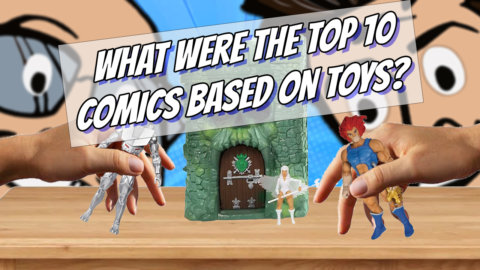 Apple’s iPad was launched this week with much fanfare. It seemed that half the world was elated and the other half mortified.
Apple’s iPad was launched this week with much fanfare. It seemed that half the world was elated and the other half mortified.
Books sellers in general and brick and mortar book and comic shops in particular seem, at first glance, to have the most to lose. Huge bookselling companies like Borders are already closing shops left and right with more cuts to come. Is this truly the beginning of the end? Did the Mayans have book and comic shops in mind when they stopped their calendar on December 21st 2012?
Since the beginning of time things are invented that displace older things that at one time displaced even older things. The Gutenberg Press lead to a lot of unemployed monks as their scribing of the bible was no longer needed. The biggest job loss history resulted when farming was mechanized. At one time most of us were farmers while now maybe 2 out of 100 are. And so on and so on.
Change sucks when your occupation is the victim of that change.
Comicbookdaily.com proudly champions comic shops around the world. We certainly recognize the potential of the iPad and other such devices to affect the current regime of delivery and consumption of comic books. We see the comic shop’s role evolving further along a path it has already been travelling on.
Let’s back up a couple of decades and remember the first wave of specialty comic shops. These were primitive things tucked away in low rent districts that catered to a very small niche market of collectors. The Comic bubble of the 90’s meant that these specialty shops could turn massive profits as legions of misguided people reserved 100s of copies of the Death of Superman etc. When that bubble burst many shops closed down while many others limped along week to week lamenting and fondly reminiscing of the golden 90s. Out of this mayhem came a new breed of comic specialty shop. These are shops that saw the potential of the specialty market and would not let the collapse of the speculative market stop them from achieving success. Diversification into related toy lines, Japanese Manga, Collectible Card Games, graphic novels and licensed apparel (we could go on) proved very successful to those bold entrepreneurs that saw the future and moved their little shops into higher rent, convenient to get to locations.
What helped this new current model of comic shop to succeed? Yes, good selection, nice clean shops and convenient locations helped. But that was the build it part. What made them come? Over the last decade there was a 10 fold increase in society’s awareness in our, what used to be, very niche industry. Movies about comics, TV shows about comics, video games about comics etc lead to comics becoming mainstream. Basically the pie got bigger. Big players like Barnes and Noble, Amazon and Chapters all jumped in for a piece. The pie got so big that progressive comic shops continued to grow even with the added competition. Now I bet you if we take a survey of good shops that were around in the 90s and asked them if they are selling more monthly comics than they were back in the day most would just look at you and laugh. They probably sold more X-Men #1s (1991) than they do the top 30 monthly titles in their store today.
What if the iPad and other devices like it got more people on to the power and glory of sequential art? What if comic books became a part of even more people’s lives?
Comicbookdaily.com does not pretend that the future is certain and we may not have the answers as to what specialty comic shops should do to position themselves to benefit form this potential increased awareness but Comicbookdaily.com does know sitting around and waiting for the end of the world should not be one of the game plans.



